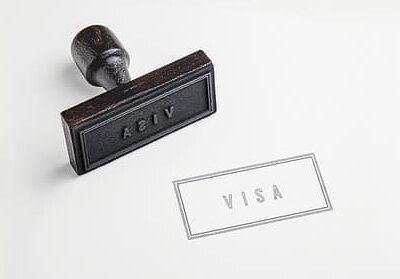You’ve visited Ireland and had an amazing time. Now, you might be thinking of how you can permanently live in the country by getting an Irish passport. Well, there is good news: It might be easier than you think. Ireland provides its citizens with a high standard of living, a thriving economy, and incredible investment opportunities, so it’s no wonder that people are flocking to the Emerald Isle. In this guide, you will learn everything you need regarding how to get an Irish passport, the benefits of Irish citizenship, Golden Visa investment options, and the application process.
Key Facts about the Irish Passport
Schengen privileges

Although a member of the European Union, Ireland is not a part of the Schengen Agreement. Hence, Irish passport holders can travel to Schengen countries for tourism, business, or visiting relatives and friends without a visa for short stays up to 90 days within any 180-day period.
However, for longer stays or for purposes like employment or long-term residency, Irish citizens would need to follow the immigration rules of the specific Schengen country they wish to stay in. This might involve applying for a visa or a residence permit, depending on the country’s regulations.
Global ranking
According to the Guide Passport Ranking Index, the Irish passport holds the 4th position in the global passport rankings. This ranking is attributed to the extensive travel freedom it offers to its holders. Irish passport holders can travel to 188 countries without needing a visa or by obtaining a visa on arrival or an electronic travel authorization (eTA). However, there are still 22 countries worldwide that require Irish passport holders to obtain a visa beforehand.
The basis for ranking national passports is the number of destinations their holders can enter without a visa. Therefore, the high ranking of the Irish passport reflects the substantial number of countries Irish citizens can access visa-free. This includes countries allowing entry without a visa or granting a visa upon arrival or through an eTA.
Types of Passport
- Standard passport book: This is the regular passport used for international travel. It is a physical booklet that contains personal information, passport number, photograph, and other relevant details. It is required for travel outside of the European Union and European Economic Area.
- Passport card: The Irish passport card is a credit-card-sized document designed for convenience and portability. It can be used for travel within the European Union and the European Economic Area. It is available to Irish citizens who are already in possession of a valid Irish passport book. The card is particularly useful for frequent travelers within these regions as it is easier to carry than the standard passport book.
- Machine-readable passports and e-passports: Modern Irish passports come in electronic passports (ePassports). These include a chip that securely stores the holder’s data, enhancing security and facilitating faster border controls.
- Diplomatic passport: Issued to Irish diplomats, top-ranking government officials, and representatives who travel internationally on official state business. This type of passport differs from the standard passport regarding the cover color and the identity page, which states the holder’s position or status.
- Official passport: Similar to the diplomatic passport, this is issued to individuals representing the Irish government on official business who may not qualify for a diplomatic passport. It’s used by civil servants, military members on official duty, and other government officials.
Emergency travel document: In cases where an Irish citizen loses their passport or it is stolen or damaged while abroad, an emergency travel document can be issued. This document allows the individual to travel back to Ireland or to an embassy where they can apply for a new passport.
Benefits of Irish Passport
Holding an Irish passport offers several benefits, particularly in terms of travel and international rights. Here are some notable benefits:
Easy access to the EU for travel and work
Travel visa-free across European Union member states and access other EU benefits as an Irish citizen – such as the right to work anywhere in the European Union without needing a work permit. Owing to this mobility across EU member states, the Irish Immigrant Investor program is quite attractive among foreign investors.
Work and study in the United Kingdom
After obtaining an Irish passport, you also gain the right to live in the United Kingdom. In addition to this, you can study or work in the UK with an Irish passport. This opportunity makes the Irish Golden Visa ideal for potential investors with families.
Get regular income from your investments
Under the Irish Immigrant Investor Program, you can get a return on your investments made in Ireland. But this will completely depend on the amount of investment made or whether you can retain the investment for the minimum required period.
Top-class educational opportunities for all students
The Irish educational system is top-notch, comprises various practices and fields and ensures equal opportunities for all students. As per the Organisation for Economic Co-operation & Development, Ireland is one of the top-performing countries regarding education. Once you obtain an Irish passport, your children can access free education across all levels – school, college, and university. Moreover, you would all have the right to study in any other EU country.
Exercise fundamental rights
The constitution of Ireland guarantees a handful of fundamental rights to all its citizens. You can exercise those rights once you become a citizen of Ireland. These fundamental rights are Property rights, family rights, and religious freedom.
Dual/multiple citizenship
Ireland allows for dual or multiple citizenships. This means you can hold Irish citizenship alongside other nationalities. However, some countries, like Japan, China, and India, do not recognize dual nationality and require renunciation of original citizenship to acquire an Irish passport.
Global Passport Requirements for Irish Passport Holders

Visa-free travel means that Irish citizens can enter a country without obtaining a visa beforehand. They are granted entry at their destination country’s border for tourism, business, or short visits.
In countries offering a visa on arrival, Irish citizens can obtain it upon entering the country rather than applying for it in advance. This process usually involves filling out a form and paying a fee at the airport or border crossing.
Electronic Travel Authorization (eTA) is a type of pre-travel authorization that is not a visa but is required for entry into some countries. Travelers apply for it online and receive it electronically before their trip. The eTA is usually quicker and easier to obtain than a traditional visa and is often used for tourist or short business trips.
We’ve summed up the specific requirements and conditions for visa-free entry, visas on arrival, and eTAs vary by country in the table below.
Country Visa Condition
Albania
Visa free
Andorra
Visa free
Angola
Visa free
Anguilla
Visa free
Antigua and Barbuda
Visa free
Argentina
Visa free
Armenia
Visa free
Aruba
Visa free
Austria
Visa free
Bahamas
Visa free
Barbados
Visa free
Belarus
Visa free
Belgium
Visa free
Belize
Visa free
Bermuda
Visa free
Bolivia
Visa free
Bonaire, St. Eustatius and Saba
Visa free
Bosnia and Herzegovina
Visa free
Botswana
Visa free
Brazil
Visa free
British Virgin Islands
Visa free
Brunei
Visa free
Bulgaria
Visa free
Cape Verde
Visa free
Cayman Islands
Visa free
Chile
Visa free
Colombia
Visa free
Cook Islands
Visa free
Costa Rica
Visa free
Croatia
Visa free
Curacao
Visa free
Cyprus
Visa free
Czech Republic
Visa free
Denmark
Visa free
Dominica
Visa free
Dominican Republic
Visa free
Ecuador
Visa free
El Salvador
Visa free
Estonia
Visa free
Eswatini
Visa free
Falkland Islands
Visa free
Faroe Islands
Visa free
Fiji
Visa free
Finland
Visa free
France
Visa free
French Guiana
Visa free
French Polynesia
Visa free
French West Indies
Visa free
Gabon
Visa free
Gambia
Visa free
Georgia
Visa free
Germany
Visa free
Gibraltar
Visa free
Greece
Visa free
Greenland
Visa free
Grenada
Visa free
Guatemala
Visa free
Guyana
Visa free
Haiti
Visa free
Honduras
Visa free
Hong Kong
Visa free
Hungary
Visa free
Iceland
Visa free
Ireland
Visa free
Israel
Visa free
Jamaica
Visa free
Japan
Visa free
Kazakhstan
Visa free
Kiribati
Visa free
Kosovo
Visa free
Kyrgyzstan
Visa free
Latvia
Visa free
Lesotho
Visa free
Liechtenstein
Visa free
Lithuania
Visa free
Luxembourg
Visa free
Macao
Visa free
Malaysia
Visa free
Malta
Visa free
Marshall Islands
Visa free
Mauritius
Visa free
Mayotte
Visa free
Mexico
Visa free
Micronesia
Visa free
Moldova
Visa free
Monaco
Visa free
Mongolia
Visa free
Montenegro
Visa free
Montserrat
Visa free
Morocco
Visa free
Mozambique
Visa free
Namibia
Visa free
Netherlands
Visa free
New Caledonia
Visa free
Nicaragua
Visa free
North Macedonia
Visa free
Norway
Visa free
Palau
Visa free
Palestinian Territories
Visa free
Panama
Visa free
Paraguay
Visa free
Peru
Visa free
Philippines
Visa free
Poland
Visa free
Portugal
Visa free
Reunion
Visa free
Romania
Visa free
Saint Kitts and Nevis
Visa free
Saint Lucia
Visa free
Samoa
Visa free
San Marino
Visa free
Sao Tome and Principe
Visa free
Senegal
Visa free
Serbia
Visa free
Singapore
Visa free
Slovakia
Visa free
Slovenia
Visa free
Solomon Islands
Visa free
South Africa
Visa free
South Korea
Visa free
Spain
Visa free
St. Helena
Visa free
St. Maarten
Visa free
St. Pierre and Miquelon
Visa free
St. Vincent and the Grenadines
Visa free
Suriname
Visa free
Sweden
Visa free
Switzerland
Visa free
Taiwan
Visa free
Tajikistan
Visa free
Thailand
Visa free
Timor-Leste
Visa free
Tonga
Visa free
Trinidad and Tobago
Visa free
Tunisia
Visa free
Turkey
Visa free
Turks and Caicos Islands
Visa free
Tuvalu
Visa free
Ukraine
Visa free
United Arab Emirates
Visa free
United Kingdom
Visa free
Uruguay
Visa free
Uzbekistan
Visa free
Vanuatu
Visa free
Vatican City
Visa free
Venezuela
Visa free
Vietnam
Visa free
Wallis and Futuna
Visa free
Zambia
Visa free
Bahrain
Visa on arrival
Bangladesh
Visa on arrival
Burkina Faso
Visa on arrival
Burundi
Visa on arrival
Cambodia
Visa on arrival
Comoros
Visa on arrival
Egypt
Visa on arrival
Guinea-Bissau
Visa on arrival
Indonesia
Visa on arrival
Iraq
Visa on arrival
Jordan
Visa on arrival
Kuwait
Visa on arrival
Laos
Visa on arrival
Lebanon
Visa on arrival
Madagascar
Visa on arrival
Malawi
Visa on arrival
Maldives
Visa on arrival
Mauritania
Visa on arrival
Nepal
Visa on arrival
Niue
Visa on arrival
Oman
Visa on arrival
Qatar
Visa on arrival
Rwanda
Visa on arrival
Saudi Arabia
Visa on arrival
Seychelles
Visa on arrival
Sierra Leone
Visa on arrival
Somalia
Visa on arrival
Tanzania
Visa on arrival
Togo
Visa on arrival
Zimbabwe
Visa on arrival
American Samoa
eVisa
Australia
eVisa
Canada
eVisa
Guam
eVisa
New Zealand
eVisa
Norfolk Island
eVisa
Northern Mariana Islands
eVisa
Pakistan
eVisa
Puerto Rico
eVisa
Sri Lanka
eVisa
United States of America
eVisa
US Virgin Islands
eVisa
Irish Passport Cost
When applying for an Irish passport, there are different fees associated with the method of application and the type of passport:
- Standard adult 10-year passport: This costs €75 when applying through Passport Online. If you apply via A the postal service, the cost is €80, plus a post fee of €9.50.
- Standard child 5-year passport: Applying online costs €20, with an additional €5 post fee. through post, the cost is €30, plus a post fee of €9.50.
- Passport card: A passport card costs €35 when applying online. It is not possible to apply for a passport card via post.
After your application is approved, you will be eligible to receive a Certificate of Naturalization. Once you get this certificate, you will be required to pay an amount of €950. An additional fee of €200 applies to children.
Irish Passport Requirements
You need to meet the following requirements to be able to apply for Irish citizenship:
- Be over the age of 18
- You need to have resided in Ireland for five years out of nine years, and more specifically, for one continuous year immediately prior to your application for citizenship in Ireland.
- Demonstrate proof of your intent to stay in Ireland.
- You should be of outstanding character.
- Be present for your citizenship process in Ireland.
Documents required
You must submit a few documents and your application form to apply for Irish citizenship. They are as listed below:
- Your current passport, or any other valid passport
- Certified copy of your original birth certificate. A certified English translation should also be attached when the original is not in English.
- A copy of your Immigrant Registration Card
- Two color photographs that have been taken within thirty days of your application date. The photos must be self-attested or signed and dated.
- Three different types of residential proof for each year that you have declared to have resided in Ireland. This can be your rent agreement, household expenses bill, bank statements, etc.
- Bank statement of at least three of the last six months
- Updated tax clearance certificate
Please note that in cases where an application is rejected, the relevant authorities will not return the application documents. Therefore, keeping a copy of all the shared documents is recommended for your personal records.
How to Get an Irish Passport
Individuals must note that there are certain cases where they can apply for an Irish passport without applying for citizenship. If they or their parents were born in Ireland on or after January 1, 2005, their right to Irish citizenship depends on their parents’ citizenship at birth.
Getting an Irish passport is possible in the following ways:
By descent
You can obtain Irish citizenship if one or both of your parents were Irish citizens at the time of your birth, regardless of where you were born.
If born abroad to an Irish parent who was also born abroad, you might be required to register in the Foreign Births Register to claim citizenship.
Through marriage
If married to an Irish citizen, you can apply for citizenship through naturalization.
You must have been married for at least three years and have lived in Ireland for a certain period, usually with a year of continuous residence immediately before the application.
By naturalization
This route is for non-Irish nationals who have lived in Ireland for a certain period, typically five years, as outlined above.
Applicants must be of good character and intend to continue residing in Ireland.
Through Investment
Ireland’s Golden Visa program provides a renewable residence permit that can eventually lead you to Irish citizenship in as little as five years. Of course, the program requires you to make a qualifying economic investment in the Irish economy in exchange for the residence permit.
Once obtained, you and your family will access incredible healthcare, world-class education, and more. Here is a list of benefits you can enjoy with an Irish passport.
Once all required documents and the application form are submitted, your Irish passport takes around 12 months to get processed. You should keep in mind that this timeline may vary from one person to another depending on personal circumstances.
Process of Getting Irish Passport by Investment
You can obtain residency in Ireland by investing in the country through the Ireland Immigrant Investor Visa Program. Once you invest in the nation’s economy, you will be provided with a Stamp 4 visa that will allow you to stay there as a resident.
You can apply for Irish citizenship after maintaining your residency for five years. Suppose you have any queries regarding your application. In that case, you might want to contact the Immigration Service Delivery at the Department of Justice and Equality or consult with a Golden Visa specialist.
Applicants need to keep in mind that they need to be physically present and tax resident of Ireland to obtain citizenship in the country. After obtaining your citizenship certificate, you can apply for your passport through the Department of Foreign Affairs and Trade in Ireland.
Eligibility
If you are planning to obtain Irish citizenship, you need to fulfill the following criteria:
- You need to be 18 years old or above.
- You are not an EEA national.
- You have no criminal record.
- Your net worth is at least €2 million.
- You will be investing without applying for any loan.
Investment options under the Ireland Golden Visa Program
As per Ireland’s Golden Visa program, you can place your investment in the country and qualify for residency via four routes:
- Enterprise Investment
- Approved Investment Funds
- Real Estate Investment Trusts (REITs)
- Endowment
Enterprise Investment
Under this option, you must make a minimum investment of €1,000,000 in an enterprise or business in Ireland. Applicants must ensure they maintain this investment for at least three years.
Investment Fund
You can also make a minimum investment of €1,000,000 in an approved investment fund in Ireland and sustain it for at least three years to qualify for the program.
Real Estate Investment Trusts
If you are planning to make a low-risk investment in Ireland, you can choose to invest in a Real Estate Investment Trust. Please note that the minimum investment under this option is €2,000,000, and you need to maintain the investment for at least three years.
Endowment
Under this option, you can donate to a qualifying philanthropic project in the country. In this case, you have to make a minimum charitable donation of €500,000.
You need to collect and submit the following documents when you apply for Ireland’s Golden Visa program:
- Your full civil birth certificate
- Proof of your address and name
- A copy of your Public Services Card or original government-issued photo identification document.
- Proof of your net worth of at least €2,000,000, declaring your business and investment endeavors from the last year, and showcasing general income, financial investments, and loans under your name.
- Proof of having the minimum required funds for investment and your capability to invest it in Ireland.
- Proof of the source of your funds, highlighting how you have received the funds and where you want to use them for investments.
- Deeds of Sale
- Inheritance and Gifts (if required)
- Divorce Settlement (if required)
- Proof of your good character. You can get statements of character from every country you lived in for more than six months in the last ten years and submit those statements with your application as proof of your moral standing.
- You must also provide a statement of character for any of your children included in your application form who are over the age of 16.
Residency
Investors can become eligible for Irish citizenship by fulfilling specific residency requirements over a five-year period:
- Year before application: You must have completed 365 days (one year) of continuous reckonable residence in Ireland immediately before applying for citizenship.
- Eight-year period: Over the eight years preceding your application, you must have accumulated 1,460 days (four years) of continuous reckonable residence in Ireland.
“Continuous reckonable residence” implies that you should not spend more than six weeks outside of Ireland in any given year. If you exceed this six-week limit in any year, that year cannot be counted towards your “continuous reckonable residence.”
Naturalization
After your application is verified and approved, a letter will be shared with you affirming that you have been given the certificate of naturalization. You will be required to be present at your citizenship ceremony in Ireland. Once you complete all these steps, you will be eligible to obtain an Irish passport. Applicants must keep in mind that only adults are required to attend the citizenship ceremony.
Citizenship ceremony
This is the last step of your naturalization process. At the citizenship ceremony, you reaffirm your loyalty and commitment to Ireland. After you declare, complete your naturalization process and get your certificate. Applicants must note that this step is crucial and mandatory to complete their naturalization process.
Get your Irish passport
Once your naturalization process is complete, you become an Irish citizen. You will also receive your Irish passport after applying for it through the Department of Foreign Affairs and Trade.
Processing Time for the Irish Citizenship by Investment

During this period, the application undergoes a comprehensive review process. This involves a thorough assessment of the documentation provided, ensuring that all the requirements for the investment program are met. The authorities verify the legitimacy and source of the funds being invested and conduct background checks on the applicants to uphold security and legal standards.
Dual citizenship
Ireland permits dual citizenship. Even if you are a citizen of a different country, you can obtain Irish citizenship and maintain your original citizenship if both countries allow it.
Irish Passport Renewal
Irish citizens can renew their passports from any location globally using the Passport Online service. Adult passports, issued to those 18 and over, are valid for 10 years. If your current passport is set to expire within the next 12 months, you are eligible to apply for a renewal.
A first-time adult passport application is necessary for individuals who have never had a passport or whose last passport was issued over 15 years ago. Alongside the passport book, you can apply for a passport card when using the online service.
Online application requirements
To apply online via Passport Online, you will need:
- A digital photograph adhering to the specified photo guidelines.
- A credit or debit card for payment.
- An email address for communication and updates.
- Your current passport, unless it is lost or stolen.
If your passport expires more than 12 months away, you must submit your current passport to the Passport Service, except in cases where it is lost or stolen. Typically, an adult renewal doesn’t require additional supporting documents.
Application processing time
The time it takes to process a passport renewal, known as the turnaround time, is consistent regardless of the applicant’s country of residence. These times do not account for the duration it takes for the post to deliver the passport. The processing period for applications needing additional documents starts from the day the Passport Service receives these documents. If further supporting documents are requested by the Passport Service, the processing time may be extended.
Average processing times by application type:
- Simple Adult Renewal: Approximately 10 working days.
- Complex Adult Renewal: About 15 working days.
- Child Renewal: Typically 15 working days.
- First Time Online Application (Adult and Child): Around 20 working days.
- Passport Card Application: Between 3 to 5 working days.
- Post Passport (paper) Application: Estimated at 8 weeks.
Urgent renewals
For urgent renewals, an in-person Urgent Appointment Service is available at the Mount St office in Dublin, the Cork office, and the London office. More information about this service can be found on the official website.
Cost of passport application
The cost varies depending on the application method and the type of passport chosen. When applying online, the fees are as follows:
- €75 for a standard 10-year passport.
- €105 for a large 66-page 10-year passport.
- €100 for a standard passport and Passport Card bundle.
- An additional postal fee of €15 is applicable if you reside outside Ireland.
Lost, Stolen, and Damaged Passports
If your passport is lost or stolen, you should immediately apply for a new one through Passport Online. This ensures your lost or stolen passport is reported and prevents its misuse. For a lost, stolen, or damaged passport, the online application process requires:
- A digital photograph meeting the photo guidelines.
- A credit or debit card for payment.
- An email address.
- Access to a printer.
If your passport is lost, stolen, or damaged on holiday, you might need an emergency travel document to return home. Contact the nearest Irish Embassy or Consulate for assistance. Do not travel on a damaged passport; instead, apply for a replacement and return the damaged one.
Alternative application methods
While Passport Online is the fastest method, if you’re in Ireland, Northern Ireland, or Great Britain and prefer not to apply online, you can use a paper passport form. In these regions, paper applications are processed through the Post Passport service.
Is It Worth Having an Irish Passport?

- Travel freedom: Irish passports are among the most powerful in terms of visa-free travel. This allows for easy travel and business opportunities in numerous countries worldwide.
- EU membership: As Ireland is an EU member, an Irish passport provides the right to live, work, and study in any EU country. This offers a significant level of flexibility and mobility within Europe.
- Global recognition and stability: Ireland is known for its stable political environment and positive international relations, contributing to the high regard for its passport.
- Access to education and healthcare: Irish citizens have access to high-quality education and healthcare systems, both in Ireland and across the EU.
- Business opportunities: With an Irish passport, conducting business in Ireland and the EU becomes more straightforward due to reduced regulatory hurdles and access to a vast market.
Do I Need to Stay in Ireland?
For residency leading to citizenship (not specifically ‘citizenship by investment’), Ireland has its own set of rules:
- Residency requirements for citizenship: Generally, to qualify for Irish citizenship through naturalization, you must have been a resident in Ireland for a certain period, typically five years out of the last nine. This includes one year of continuous residence immediately before your application.
- Investment and residency: If you’re considering residency through investment, Ireland offers the Immigrant Investor Programme (IIP). This doesn’t directly grant citizenship but can lead to residency. Under the IIP, you’re required to maintain your investment and comply with residency rules, but these do not necessarily require full-time residence in Ireland.
- Path to citizenship: After fulfilling residency requirements, you may apply for citizenship through naturalization. This process is separate from the investment and requires you to meet all standard criteria for naturalization.
Global Citizen Solutions is a boutique migration consultancy firm with years of experience delivering bespoke residence and citizenship by investment solutions for international families. With offices worldwide and an experienced, hands-on team, we have helped hundreds of clients worldwide acquire citizenship, residence visas, or homes while diversifying their portfolios with robust investments. We guide you from start to finish, taking you beyond your citizenship or residency by investment application. How Can Global Citizen Solutions Help You?

Frequently Asked Questions about the Irish Passport
How long to get Irish passport?
If you are applying online for your first Irish passport, it would take around 20 working days to get your application processed. On the other hand, if you are applying via post, it would take around eight weeks for your application to get processed.
How can you track the progress of your application?
Through the Irish Government Passport Service, you can check the status of your application online. Make sure to keep your application form number handy to use this service.
Where is the Irish passport office?
The Department of Foreign Affairs is located in Dublin at:
Knockmaun House, 42-47 Lower Mount Street, Dublin 2, D02 TN83, Ireland.
Irish passport photo requirements?
You need to submit four recent photographs of yourself with your application form. Two of these photos must be signed on the backside by the person who has witnessed the application.
How powerful is the Irish passport?
With a mobility score of 172, the Irish passport ranks among the top 10 passports globally.
How can you qualify for an Irish passport?
You must be an Irish citizen to qualify for an Irish passport. If you were born in Ireland before 2005 or if you were born abroad to a parent who was born in Ireland before 2005, then you are automatically an Irish citizen. If you don’t fall under any of these categories, then you need to obtain citizenship through investment in Ireland.
Can a non-Irish citizen get an Irish passport?
Non-Irish citizens can obtain an Irish passport if-
- One of their parents was born in Ireland (Citizenship by descent).
- One of their grandparents was born in Ireland/one of your parents was an Irish Citizen at the time of your birth (Foreign Birth Registration Certificate).
- They have a certificate of naturalization.
How do I get an Irish passport by descent?
If you or your parents were born in Ireland before 2005, you can obtain an Irish passport by descent.
What are the rights of Irish citizens?
The rights of Irish citizens are:
- Freedom to carry a strong Irish passport
- Live and work in Ireland indefinitely without restriction
- Vote in general elections, constitutional referendums, or presidential elections
- Be elected a member of the Irish government and Council of the European Union
- Live, travel, and work in any EU country
Is Irish citizenship valuable?
Ireland has one of the most valuable citizenships available. Irish passport holders enjoy freedom of movement throughout the EU, as well as visa-free and visa-on-arrival access to 174 countries worldwide. Ireland is considered one of the safest countries in Europe and the world, and Irish citizens have access to a high standard of education and enhanced social benefits.
How many generations can you go back for Irish citizenship?
You can acquire Irish citizenship by tracing your ancestry up to the third generation. This means that you are eligible if your parent, grandparent, or great-grandparent was an Irish citizen at the time of your birth. However, it’s important to note that having ancestors beyond the third generation, such as great-great-grandparents, who were Irish citizens does not grant you eligibility for Irish citizenship.


